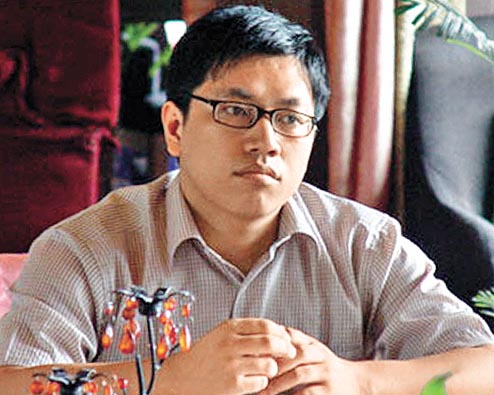Scholar and activist Guo Yushan, arrested in January for “illegal business activity” after being detained in October 2014, has been released on bail ahead of Xi Jinping’s state visit to the U.S. next week. Guo played an instrumental role in helping blind activist Chen Guangcheng receive asylum in the U.S. after his 2012 escape from house arrest. Also released on bail was He Zhengjun, who served as the administrative director of the Transition Institute, an independent think tank founded by Guo that was raided and closed by authorities in 2013. The New York Times’ Andrew Jacobs reports:
Both men have been accused of illegally printing books and other publications, charges that remain in effect while they are free on bail.
Their release, nearly a year after they were detained, came before President Xi Jinping of China travels to the United States next week for his first state visit. Some analysts interpreted the timing as an attempt by Beijing to blunt potential criticism in Washington of China’s human rights record.
[…] Hu Jia, a prominent Chinese dissident and a friend of Mr. Guo’s, described his release as a “diplomatic card” that the government hoped would ease criticism of Beijing’s crackdown on independent journalists, rights lawyers and advocates for political reform. “They release 1 percent of the jailed political dissidents, but are relieved of 80 percent of the pressure they face,” he said by phone.
But William Nee, Amnesty International’s China researcher, said Mr. Guo’s release should not distract the White House from a string of troubling abuses by the Chinese government, including a campaign against Christian churches in coastal Zhejiang Province that has led to the removal of hundreds of crosses from church buildings. [Source]
The Guardian’s Tom Phillips quotes Human Rights Watch China director Sophie Richardson on the possibility that Guo’s release is an attempt to keep human rights out of the spotlight on Xi’s state trip:
Sophie Richardson, the China director at Human Rights Watch, said Guo’s release appeared to be part of an attempt by Beijing to prevent criticism of the country’s human rights record overshadowing Xi’s visit.
[…] “We have seen the Chinese government make what appear to be a series of small concessions presumably as a way of trying to keep human rights issues out of the summit. That shouldn’t happen,” said Richardson. “Letting people out of jail and letting certain kinds of people visit are good things but that should not get Xi Jinping off the hook.”
Richardson said the recent concessions were part of Beijing’s “normal approach to try to take these issues out of a very high-profile discussion. [Once it is over] we just revert to the status quo.”
She called on Barack Obama to speak out over the plight of China’s human rights lawyers, who have been the target of an unprecedented government crackdown since July. [Source]








